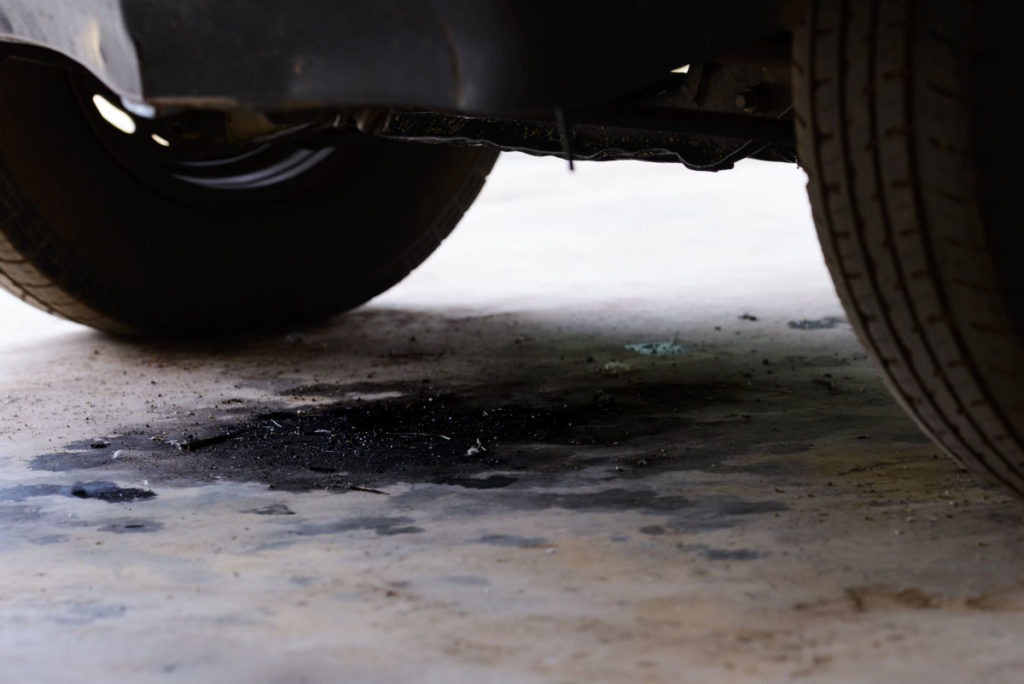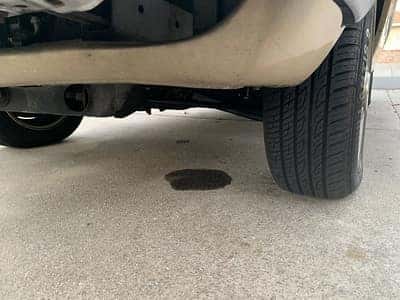How to Know If Your Car is Leaking Oil
To check for oil leaks, inspect the ground under your car for oil spots or stains. Look for a burning smell or smoke coming from the engine.
Oil leaks can indicate a potentially serious issue with your car’s engine that needs to be addressed promptly. Neglecting oil leaks can lead to engine damage and expensive repairs. Taking the time to identify and fix oil leaks early can help maintain the health and performance of your vehicle.
This guide will provide you with essential information on how to detect oil leaks in your car and take appropriate action to prevent further damage. By staying vigilant and proactive, you can ensure the longevity and reliability of your vehicle.

Credit: lubemasterphilly.com
Drips And Puddles
When checking for oil leaks, observing the presence of drips and puddles beneath your car is a crucial first step. These visual indicators can help you identify whether your car is leaking oil and whether it requires immediate attention. It’s essential to pay close attention to the color and consistency of the oil, as these factors can provide valuable insight into the health of your car’s engine.
Color Of Oil
Observe the color of the oil puddle beneath your car. Fresh engine oil typically has a golden-brown hue, resembling honey. If the oil appears dark or black, it may indicate the presence of contaminants, such as dirt and debris, or potential engine issues. Additionally, a greenish color could signify an antifreeze leak, while a reddish tint may indicate a transmission fluid leak.
Consistency Of Oil
Assess the consistency of the oil. Fresh engine oil should have a smooth, viscous texture. If the oil appears thin and watery, it could be a sign of a more significant leak or a malfunction in the engine’s oil system. Thick, sludgy oil may suggest that the car has not had a regular oil change, leading to potential engine damage.

Credit: www.performancehondastore.com
Exhaust Smoke
Your car’s exhaust smoke can provide valuable clues about potential oil leaks.
Blue Smoke
Blue smoke indicates burning oil in the combustion chamber, signaling a possible oil leak.
White Smoke
White smoke can indicate coolant mixing with the oil due to a head gasket failure.
Black Smoke
Black smoke typically points to a rich air-fuel mixture, but it can also be caused by oil leaking onto hot engine components.
Burning Smell
The presence of a burning smell in or around your car can be a telltale sign that your vehicle may be leaking oil. It is essential to pay attention to this distinct scent as it could indicate potential issues that need to be addressed promptly.
Sweet Smell
If you notice a sweet smell resembling maple syrup emanating from your car, it could be a sign of oil leaking onto the hot engine components.
Acrid Smell
An acrid or pungent odor that resembles burning rubber or plastic might indicate an oil leak reaching your car’s exhaust system, causing the smell to be released through the tailpipe.

Credit: davidsgarageakron.com
Drop In Oil Level
Wondering if your car is leaking oil? One way to know is by checking the drop in oil level. Keep an eye on your oil gauge or dipstick to identify any potential leaks.
The drop in oil level is a common indicator of an oil leak in your car. Monitoring your oil level on a regular basis is essential to ensure that your car’s engine is running smoothly. A sudden decrease in the oil level could be a sign of a leak that needs immediate attention. “`htmlChecking The Dipstick
“` To check for a drop in oil level, start by parking your car on a level surface and allowing the engine to cool down. Open the hood and locate the engine’s oil dipstick. Pull the dipstick out, wipe it clean, reinsert it, and then pull it out again to check the oil level. If the oil level is below the recommended range, it’s a clear indication of a potential oil leak. “`htmlMonitoring Dashboard Warning Lights
“` Another way to stay alert to a drop in oil level is by keeping an eye on your dashboard warning lights. If your car is equipped with an oil pressure warning light, it will illuminate if the oil level drops significantly. This serves as a crucial warning signal, indicating the need to investigate and address any potential oil leaks promptly. Remember, a drop in oil level can lead to serious engine damage if not addressed promptly. Keep a vigilant eye on your oil levels to ensure the health and longevity of your car’s engine.Strange Noises
Strange noises coming from your car can be a cause for concern. If you notice any unusual sounds, it’s important to investigate the source as it may indicate a potential problem with your car’s oil system. Two particular noises you should pay attention to are the
Loud Tapping Sound
and theKnocking Noise
.Loud Tapping Sound
When you hear a repetitive, metallic tapping sound, it could be a sign of low oil pressure or insufficient lubrication in the engine. This noise is typically heard from the top of the engine and may be more pronounced when the car is idling or at low speeds. If you experience this sound, it’s crucial to check your oil level immediately.
Knocking Noise
A knocking noise, often described as a heavy thumping sound, might indicate a more serious oil leak issue. This noise is usually heard from the lower part of the engine and can be a result of worn-out bearings or even engine damage due to a lack of oil. If you detect a knocking noise, take it as a warning sign and have your car inspected by a mechanic as soon as possible to prevent further damage.
It’s important to note that strange noises from your car can have multiple causes, and they may not always be directly related to an oil leak. However, when it comes to oil leaks, these noises should never be ignored. Regularly checking your oil level and taking prompt action when you hear unusual sounds can help you identify and address oil leaks before they become major issues.
Frequently Asked Questions For How To Know If Your Car Is Leaking Oil
How Can You Tell If Your Car Has An Oil Leak?
You can tell if your car has an oil leak by checking for oil spots under the car, a burning oil smell, or a low oil level on the dipstick. Look for visible oil on the engine and listen for any unusual engine noise.
Get it inspected by a mechanic for a proper diagnosis.
Can You Drive A Car With An Oil Leak?
Driving a car with an oil leak is not recommended as it can lead to engine damage. Seek repairs promptly to prevent further issues.
Are Oil Leaks Expensive To Fix?
Oil leaks can be expensive to fix, depending on the severity and location of the leak. The cost typically ranges from $150 to $2000 for repairs. Regular maintenance can help prevent costly leaks.
What 3 Things Can Cause An Oil Leak?
An oil leak can be caused by a damaged oil pan gasket, loose or worn-out oil drain plug, or a cracked engine block. Regular maintenance and inspections can help prevent oil leaks.
How Can I Tell If My Car Is Leaking Oil?
If you notice oil stains under your car, a burning smell, or a dropping oil level, it’s likely leaking.
Why Is My Car Leaking Oil?
Possible reasons for oil leaks include worn gaskets, loose plugs, damaged seals, or an oil filter issue.
Is It Safe To Drive With An Oil Leak?
Continuing to drive with an oil leak can cause engine damage, so it’s better to address it promptly.
Conclusion
Understanding the signs of an oil leak in your car is crucial for maintaining its performance and longevity. By paying attention to unusual smells, spots on the ground, and changes in oil levels, you can diagnose and address potential issues early on.
Regular maintenance and inspections can help prevent costly repairs in the future. Stay proactive and keep your car in top condition!
